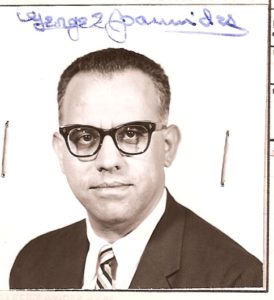After the end of World War II, the U.S. national-security establishment convinced the American people that there existed an international communist conspiracy to take over the United States and the rest of the world. This supposed conspiracy, U.S. officials steadfastly maintained, was based in Moscow, Russia. During the Cold War, the tentacles of this supposed conspiracy spread to China, North Korea, North Vietnam, Cuba, Iran, Guatemala, Chile, and other places around the world, including the United States. The Reds, they said, were everywhere and were coming to get us.
This supposed threat of communism, in fact, is what motivated U.S. officials to convert the federal government into a national-security state, a totalitarian type of governmental structure in which officials wield omnipotent powers, such as assassination. It also motivated U.S. officials to intervene in the civil wars in Korea and Vietnam, which killed more than 100,000 U.S. soldiers, many of whom had been conscripted to “serve.” The Pentagon and the CIA maintained that if the communists weren’t stopped over there, they would soon be in the halls of Congress, the White House, and the Supreme Court, not to mention the public schools, running the country over here.
Thus, for an American few things could be considered worse than to be labeled a communist. People who were suspected of being communists were fired from their jobs, ostracized, and sometimes criminally prosecuted. Recall the McCarthy hearings, when many people’s lives were destroyed simply through the government’s asking the question, “Are you now or have you ever been a member of the Communist Party?” Recall the Hollywood Blacklist and the criminal prosecution of Hollywood writer Dalton Trumbo and the Hollywood Ten. Recall the spying on and blackmail of civil rights leader Martin Luther King, who U.S. officials suspected of being a communist.
Immediately after the assassination of President Kennedy, the word went out that he had been killed by a communist, a young former U.S. Marine named Lee Harvey Oswald. The very first organization to begin publicizing Oswald’s communist bona fides was an anti-Castro exile group in New Orleans called the DRE, which immediately sent out a press release announcing that Oswald was a communist. The publicity was highly effective in dissuading people, especially people on the left, from questioning the official narrative of the assassination — that Kennedy had been killed by a communist. People were scared to death that if they questioned the official narrative, they would be labeled communists or communist sympathizers.
What people did not know at the time — and what they would not discover for several decades — was that the DRE was being secretly funded and directed by the CIA. The CIA’s supervising officer for the DRE was a man named George Joannides.
In the late 1990s, former Washington Post reporter Jefferson Morley uncovered Joannides’ role in the DRE back in 1963 and began requesting the CIA for its files on Joannides. The CIA steadfastly refused to comply with Morley’s request and made it clear that it would never disclose most of Joannides’s secret activities.
Morley filed a Freedom of Information lawsuit against the CIA, which, owing to the massive resistance of the CIA, lasted for years. The fascinating story of Morley’s battle against CIA secrecy on Joannides is now told in FFF’s newest book, Morley v. CIA: My Unfinished JFK Investigation, which is available in Kindle format on Amazon for $1.
In the course of his investigation and litigation, Morley uncovered some fascinating and intriguing facts about Joannides. In the 1970s, the House Select Committee on Assassinations reopened the investigation into the Kennedy assassination. When committee attorneys began seeking too many documents relating to Oswald’s trip to Mexico City, the CIA called Joannides out of retirement, ostensibly to serve as a facilitator between the House committee and the CIA.
As it turned out, however, Joannides’s real role was to serve as an obstructor to the efforts by the House committee attorneys to securing JFK-assassination-related information from the CIA, including information relating to Oswald’s trip to Mexico City. In the process, Joannides and the CIA failed to disclose his role with the DRE in the months leading up to the assassination, just as they had failed to disclose it to the Warren Commission back in 1964.
During the term of the Assassination Records Review Board, Joannides and the CIA once again failed to disclose his pre-assassination relationship to the DRE. Former House Select Committee counsel Robert Blakey later accused the CIA of obstruction of justice, which is a felony. Judge John Tunheim, who chaired the ARRB, declared that “the Agency should come completely clean.”
But the CIA refused to come clean on Joannides, as detailed in Morley’s fascinating account of his long judicial fight against the CIA.
Morley is the author of another book published by FFF: CIA & JFK: The Secret Assassination Files. He will be delivering two presentations at FFF’s upcoming online weekly conference series “JFK’s Foreign Policy and the Assassination.”
The conference series will begin on Wednesday, March 3, and continue weekly on Wednesdays through April 21. Registrations will open next month. Admission will be free.




